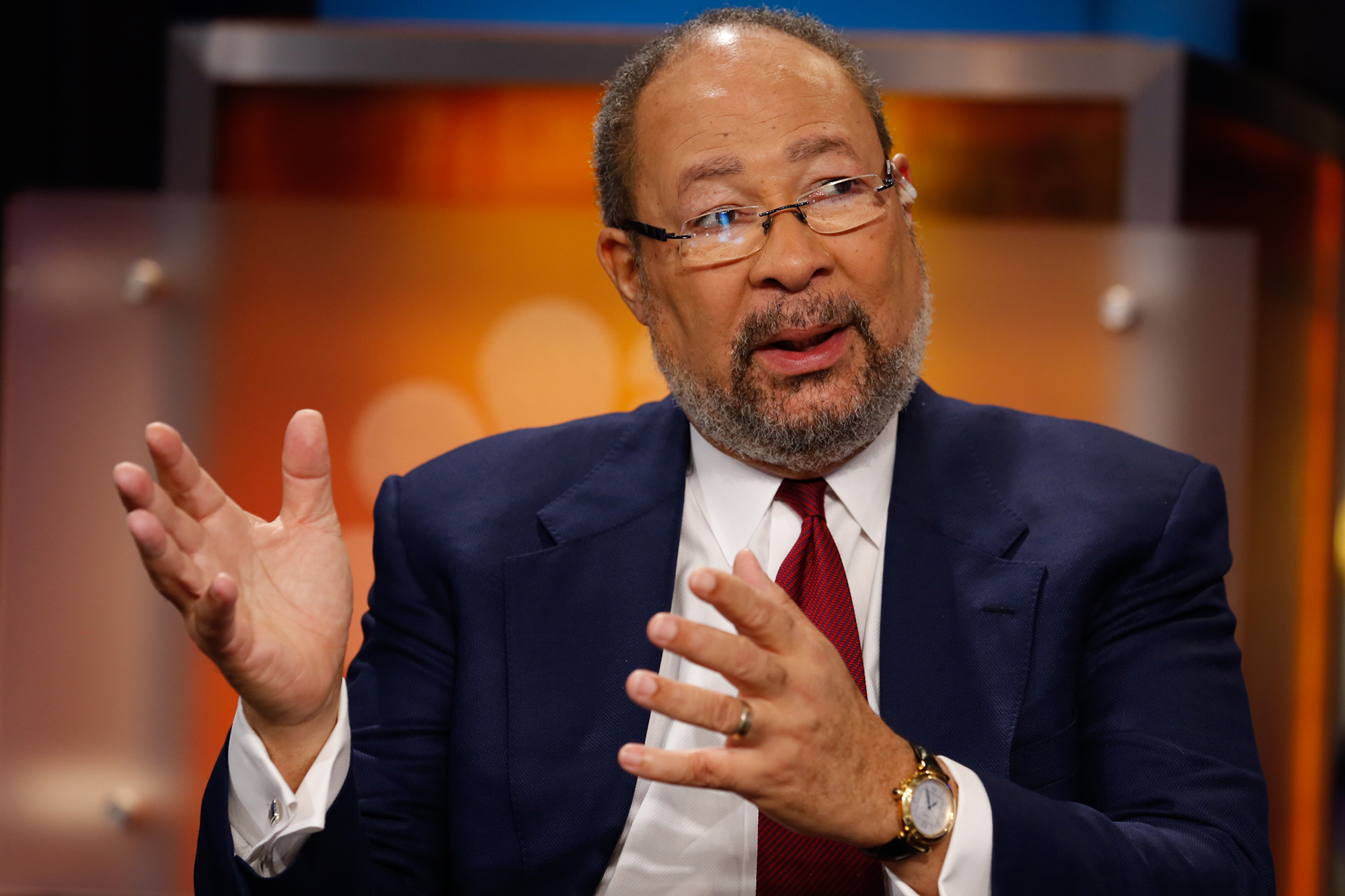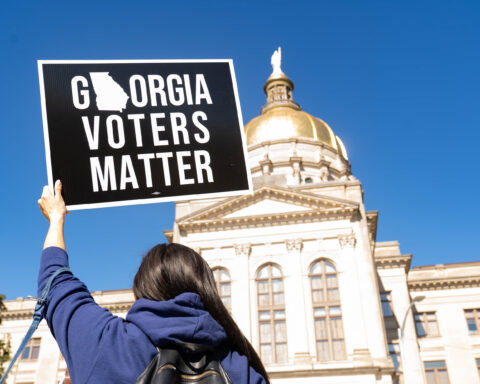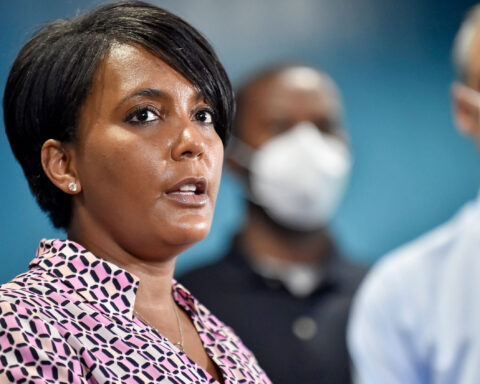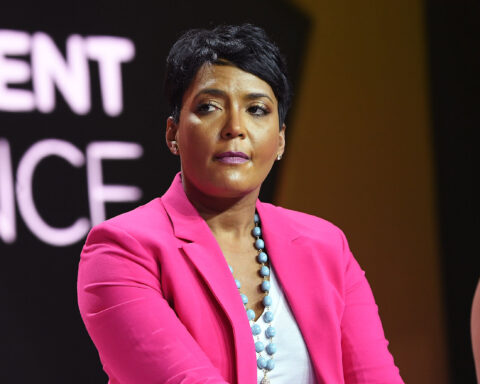Dick Parsons had to make countless difficult decisions during his storied corporate career. The decision to speak out on Georgia’s voting law was not one of them.
“This was an easy one. There is simply no excuse for what the Georgia legislature has done,” Parsons told CNN Business in his first public comments on the controversial law.
Parsons, who in the early 2000s became one of the first Black CEOs of a Fortune 500 company, is among the 72 Black corporate leaders who signed a letter calling on companies to fight Republican voting restrictions.
In the interview, the former Time Warner and CBS CEO slammed the Georgia law as “bone-headed,” a blatant attempt to suppress the Black vote and a “ruse” that pretends to be aimed at safeguarding elections.
Parsons, who calls himself a lifelong Rockefeller Republican, called out the Georgia law for imposing restrictions around offering food and drink to voters waiting in line at polling places. He pointed out that Black voters in Georgia wait significantly longer than White voters.
“What does feeding somebody or giving somebody a glass of water have to do with fraud?” Parsons asked. “It’s just a bald-faced attempt to prevent or suppress the number of Black voters who show up to vote in Georgia. We felt as a corporate community that we needed to call the legislature out, hold them accountable.”
Defenders of the Georgia law, including former President Donald Trump, say it is designed to prevent voter fraud. Senate Minority Leader Mitch McConnell warned businesses they face “serious consequences” for attempting to influence voting laws.
The ‘impossible task’ facing Trump
Trump has called for a boycott of companies that are speaking out on voting rights, including Major League Baseball, Coca-Cola, Delta Airlines, JPMorgan Chase, ViacomCBS and Citigroup.
“Now they are going big time with WOKE CANCEL CULTURE and our sacred elections. It is finally time for Republicans and Conservatives to fight back — we have more people than they do — by far!” Trump said in a statement over the weekend. “Don’t go back to their products until they relent. We can play the game better than them.”
Asked about the fact that the former American president is now calling for a boycott of some of America’s biggest brands, Parsons chuckled and said, “Good luck, former President Trump.”
“Do people really want to deprive themselves of all the products and services [of those companies] in an effort to sort of turn the clock back to 1865? I don’t think so, but we’ll find out,” said Parsons, who served as Citi’s chairman during the financial crisis and before that led CNN’s former parent, Time Warner.
Parsons said Trump “basically is ignorant of history” and wants to make things go back to the way they were, or at least stop them from progressing any further.
“That’s an impossible task. No one in history has ever been able to do it. And he won’t be able to do it,” he said.
The message to other states debating Georgia-like laws
MLB announced last week it will move the All-Star game out of Atlanta because of the Georgia voting law. Baseball will reportedly hold the mid-summer classic in Colorado instead.
“It was the right move,” said Parsons, who previously served as the interim CEO of the NBA’s Los Angeles Clippers. He added that a large segment of professional athletes are Black. “They have to stand with their own constituency, their own employees.”
Of course, this voting rights debate is about far more than Georgia.
Lawmakers in 47 states have introduced bills that would make it harder to vote, according to a tally by the Brennan Center for Justice at New York University.
Parsons said the stand taken by some CEOs against the Georgia law should send a message to other states considering similar legislation. He compared the situation to when a baseball manager runs out and contests a call made by an umpire.
“He really isn’t expecting the umpire to change the call he made, but he’s expecting the umpire to remember this the next time,” Parsons said. “We’re hoping that other states will see that they can’t enact this kind of legislation unaccountably…and have no consequence to pay for it.”
‘Blacks got left behind’
There is growing momentum behind an effort to get the federal government to pay reparations to Black families.
Last month, the Chicago suburb of Evanston, Illinois, approved the nation’s first reparations program, which will provide funding for home loans to residents who can demonstrate harm from discriminatory housing practices.
Parsons said he does not support a reparations program based solely on writing checks to the African-American community.
“I don’t think that’s useful. That money would just be lost,” he said.
However, Parsons said he would strongly favor a broader reparations package built around training, education and support to help Black families get a hold of the American dream.
“Look brother, Blacks got left behind and are still behind a hundred and more years later and need some help with catching up,” Parsons said. “But it’s more than simply transferring money to them.”
‘Hope and optimism’
Along with former American Express CEO Kenneth Chenault, former Merrill Lynch boss Stanley O’Neal and former Fannie Mace CEO Frank Raines, Parsons was part of the first class of Black CEOs at major American companies.
Long before he joined the C-Suite, Parsons skipped grades twice during his education and graduated high school in New York City at the age of 16. He finished at the top of his class at Albany Law School.
He went on to work for prominent Republicans, including Nelson Rockefeller and President Gerald Ford.
Although Parsons said he’s angered by the egregious racism inflicted on Black Americans, he said he didn’t personally experience overt discrimination during his career.
“I’ve had a charmed run I guess,” Parsons said. “I suppose that’s one of the reasons why I still have a lot of hope and optimism that we as a country can get past this in an enduring and durable way.”







